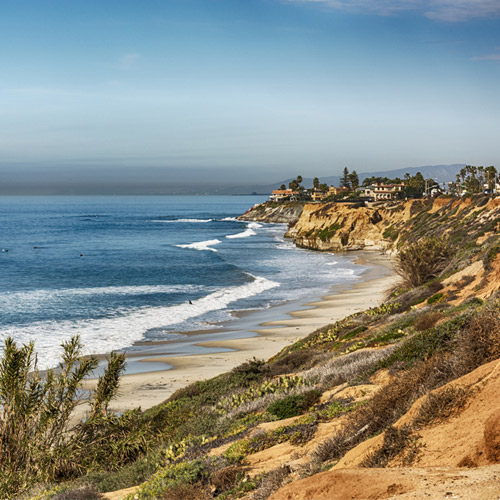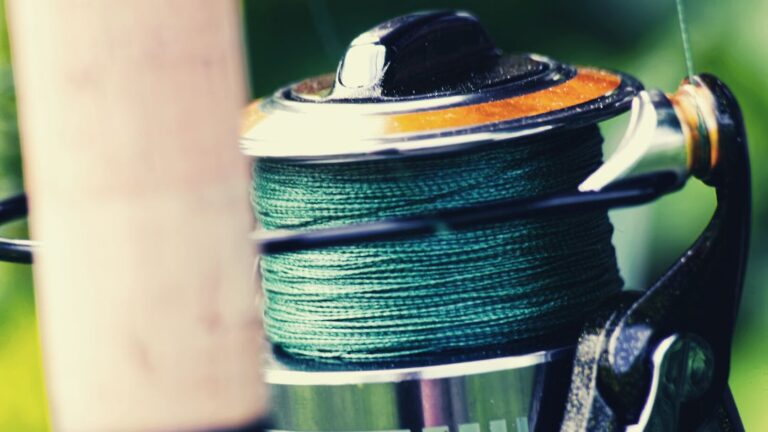22 Must-Have Boating Essentials for an Unforgettable Day on the Water
Ensure a successful day of boating by bringing these 22 essential items onboard.
Importance Of Having The Right Gear
Having the right gear is essential for a successful and enjoyable day of boating. Whether you’re headed out for a leisurely cruise or planning a full day of water activities, being prepared with the necessary equipment can make all the difference. From ensuring your safety to enhancing your overall experience, the importance of having the right gear cannot be overstated.
Don’t Leave The Dock Without These Essential Items
Before setting sail, it’s crucial to double-check that you have all the essential items on board. These items are crucial for your safety, as well as for the smooth running of your boat. Here’s a list of must-have items:
- Life jackets: Ensure you have enough properly fitting life jackets for everyone on board. Safety should always be a top priority.
- First aid kit: Accidents can happen, even on the water. Having a well-stocked first aid kit will allow you to address minor injuries or provide initial care until help arrives.
- Fire extinguisher: Electrical malfunctions or fuel-related incidents can pose serious threats. Having a fire extinguisher on board can help you handle such emergencies.
- Navigation tools: Carry charts, maps, and a compass to help you navigate properly. These tools come in handy when you need to find your way back to the dock or avoid hazardous areas.
- Anchor and line: An anchor and line are crucial for securing your boat in case of emergencies or when you want to stop and enjoy the views.
- Toolbox: Having a toolbox with the necessary tools can help you address minor repairs or fix any issues that may arise during your boating adventure.
- Extra batteries: Make sure to have spare batteries for your navigation lights, radio, and any other electronic devices you may need.
- Flashlight: A waterproof flashlight can prove invaluable in case of power failure or for signaling for help.
- Cell phone or marine radio: Communication devices are essential for calling for help in case of an emergency or staying in touch with other boaters.
Stay Safe And Prepared With The Necessary Equipment
When it comes to boating, safety should always be a top priority. Equipping yourself with the necessary gear will help you stay safe and prepared for any situation that may arise. Here are some additional items that can ensure your safety:
- Personal locator beacon: A personal locator beacon can transmit your location if you’re in distress or need immediate assistance.
- Whistle or horn: Having a whistle or horn on board allows you to signal for help or alert nearby boaters in case of an emergency.
- Throw cushion or life ring: These flotation devices can be thrown to someone in the water to provide support until help arrives.
- Flares or signaling devices: Flares are an essential signaling device for attracting attention in low visibility situations or when you need to communicate an emergency.
- Radar reflector: A radar reflector can make your boat more visible to other vessels, especially during nighttime or in adverse weather conditions.
- Foghorn: In foggy conditions, a foghorn can alert other boaters to your presence and help avoid collisions.
Ensure An Enjoyable Boating Experience With The Right Gear
In addition to safety, having the right gear can greatly enhance your overall boating experience. Here are some items that can make your day on the water more enjoyable:
- Cooler with ice: Keep your food and beverages fresh and cool throughout the day with a well-insulated cooler and plenty of ice.
- Sunscreen and sun protection: Protect yourself from harmful UV rays by applying sunscreen, wearing a hat, and bringing along sunglasses.
- Swim ladder or platform: If you plan on swimming or taking a dip in the water, having a swim ladder or platform makes getting in and out of the water easier and safer.
- Waterproof bag or dry box: Keep your valuables, electronics, and important documents dry and protected from water exposure.
- Portable marine radio or Bluetooth speaker: Bring along some music or stay tuned in to weather updates with a portable marine radio or a Bluetooth speaker.
- Binoculars: Enhance your boating experience by bringing a pair of binoculars to spot wildlife, enjoy scenic views, or get a closer look at other boats.
- Extra clothing and towels: Prepare for unexpected weather changes or water activities by packing extra clothing and towels.
- Snacks and water: Stay well-nourished and hydrated by packing snacks and plenty of water to keep you refreshed throughout the day.
Safety First: Must-have Safety Equipment
Life Jackets: Stay Afloat And Comply With Safety Regulations
When it comes to boating, safety should always be your top priority. One of the most critical pieces of safety equipment to have on board is a life jacket. Not only will a life jacket keep you afloat in case of an emergency, but it is also a legal requirement in many places. Life jackets are available in a variety of styles and sizes, so you can easily find one that fits comfortably and suits your needs.
Fire Extinguisher: Be Prepared For Emergencies On Board
Accidents happen, and being prepared for emergencies is essential when boating. One important piece of safety equipment to have on board is a fire extinguisher. In case of a fire outbreak on your boat, a fire extinguisher can help you extinguish the flames quickly, potentially preventing a major disaster. Make sure your fire extinguisher is fully charged and easily accessible at all times.
First Aid Kit: Handle Minor Injuries And Unexpected Accidents
Minor injuries and unexpected accidents can occur during a day of boating, so it’s crucial to have a well-stocked first aid kit on board. Your first aid kit should include essentials like bandages, antiseptic ointment, adhesive tape, pain relievers, and any necessary medications for specific medical conditions. In case of an injury or medical issue, having a first aid kit readily available can help you address the situation promptly.
Throwable Flotation Device: Aid In Water Rescues
In the event of someone falling overboard, having a throwable flotation device on board can be a lifesaver. This type of device, such as a throw ring or float cushion, is designed to be thrown to someone in the water to help them stay afloat while waiting for rescue. Ensure that your throwable flotation device is easily accessible and that crew members are familiar with how to use it.
Navigation Lights: Stay Visible During Low Light Conditions
When boating during low light conditions, such as at dusk or dawn, it’s crucial to stay visible to other boaters. Navigation lights are essential for maintaining visibility and preventing collisions. According to the regulations, every boat must display the appropriate navigational lights according to its size, type of operation, and location. Always ensure your navigation lights are in working order before heading out on the water.
Navigating With Confidence: Essential Navigation Equipment
Navigating with Confidence: Essential Navigation Equipment When it comes to boating, having the right navigation equipment on board is essential to ensure a safe and enjoyable journey. Whether you’re a seasoned sailor or a novice captain, being equipped with the necessary tools will give you the confidence to navigate with ease. In this section, we will discuss the four essential navigation equipment pieces that every boater should have, including marine charts, compass, GPS device, and binoculars. Let’s dive in and explore each of these items in detail.Marine Charts: Plan Your Course And Navigate With Ease
Before setting sail, it’s crucial to have marine charts on board. Marine charts are detailed maps specifically designed for marine navigation. These charts provide valuable information about water depths, underwater hazards, navigation aids, and even points of interest. By studying and plotting your course on these charts, you can easily plan your journey, identify potential hazards, and make informed navigational decisions. A clear understanding of the surrounding waters will ensure you stay on the right track and sail smoothly towards your destination.Compass: Maintain Directional Awareness On The Water
Maintaining directional awareness is crucial while out at sea, and that’s where a compass comes in handy. A compass is an indispensable navigation tool that helps you determine your heading relative to magnetic north. By using a compass, you can easily orient yourself and maintain a steady course, even if your GPS device fails or you encounter navigational challenges. A compass is a reliable and dependable instrument that ensures you won’t lose your way on the water.Gps Device: Accurately Track Your Position And Route
While marine charts and a compass are essential, it’s also wise to have a GPS device on board. A GPS device uses satellite signals to determine your exact position on the water with pinpoint accuracy. It not only helps you track your position but also provides valuable information such as speed, distance, and time to destination. With a GPS device, you can confidently navigate through unfamiliar waters, follow a pre-planned route, and even mark important waypoints for future reference. Having a GPS device as a backup to traditional navigation tools ensures you have reliable information at your fingertips.Binoculars: Spot Hazards And Identify Landmarks From A Distance
Another crucial piece of navigation equipment to have on board is a pair of binoculars. Binoculars allow you to spot potential hazards, such as floating debris or other boats, well in advance. They also help you identify landmarks or navigational aids from a distance, making it easier to determine your position and stay on course. With the ability to zoom in on distant objects, binoculars enhance your situational awareness and give you a clear view of your surrounding environment. In conclusion, when it comes to boating, having the right navigation equipment is essential for a safe and confident journey. Marine charts, compass, GPS device, and binoculars are indispensable tools that provide valuable information, maintain directional awareness, accurately track your position, and enhance situational awareness. By being prepared with these essential navigation equipment pieces, you can set sail with confidence and navigate the waters with ease. So, before you embark on your next boating adventure, ensure your boat is equipped with these navigation essentials.Staying Connected: Communication And Electronic Equipment
When heading out for a day of boating, it’s crucial to stay connected with the outside world, especially when it comes to communication and safety measures. Being equipped with the right tools and devices ensures you can reach out for help in case of emergencies and stay updated on changing weather conditions. In this section, we’ll explore the essential communication and electronic equipment you should bring aboard for a seamless boating experience. From VHF radios to emergency locator beacons, let’s dive right in!
Vhf Radio: Keep In Touch With Other Boaters And Emergency Services
One of the most vital pieces of electronic equipment to have on your boat is a VHF radio. This radio system allows you to communicate with other nearby boats, the coast guard, and emergency services in case of any unforeseen circumstances. Whether you need to share navigational information, notify others about hazards, or request assistance, a VHF radio provides a reliable and easy-to-use means of staying connected. Make sure to check that your VHF radio is properly tuned and functioning before setting sail.
Mobile Phone Or Satellite Phone: Reliable Communication In Remote Areas
In this day and age, a mobile phone has become an essential item in most people’s lives, and it’s no different when out on a boat. Having a mobile phone with you ensures that you have a backup communication device, even in remote areas. While cell phone coverage can be limited on the water, it’s always worth having a mobile phone handy, especially if you encounter an emergency situation. Additionally, for those venturing into more remote locations, a satellite phone can provide reliable communication when traditional cell signals are not available.
Emergency Locator Beacon: Signal For Help In Distress Situations
When it comes to safety, an emergency locator beacon is a crucial piece of equipment to have on board. These devices are designed to transmit a distress signal to search and rescue teams in the event of an emergency. Emergency locator beacons can be activated manually or automatically, ensuring that help is on the way when you need it most. These devices use frequency signals that can be detected by satellites, which then relay the distress signal to the appropriate authorities.
Marine Weather Radio: Stay Updated On Changing Weather Conditions
Weather conditions can change rapidly when you’re out on the water, and being aware of any upcoming storms or weather fluctuations is essential for a safe and enjoyable boating experience. That’s where a marine weather radio comes in handy. This specialized radio is designed to receive weather reports and forecasts specifically tailored to the marine environment. By staying tuned in to the latest weather updates, you can make informed decisions about when to head back to shore or take precautions to ensure your safety.
Comfort And Convenience: Essential Accessories
Bimini Top Or Sunshade: Provide Protection From The Sun
Nothing can ruin a day on the boat faster than the scorching sun beating down on you. That’s why a bimini top or sunshade is an essential accessory to have on board. These retractable canopies provide much-needed shade and protection from harmful UV rays. Whether you’re lounging on deck or driving the boat, having a bimini top to shield you from the sun’s intense heat is an absolute game-changer.
Cooler Or Fridge: Keep Food And Beverages Fresh And Cold
When you’re out on the water, you’ll want to keep your refreshments chilled and your food fresh. That’s where a cooler or fridge comes in handy. These essential accessories will keep your beverages icy cold, ensuring that you and your crew stay hydrated throughout the day. From refreshing cold drinks to picnic lunches, having a cooler or fridge on board will make your boating experience all the more enjoyable.
Anchor And Docking Lines: Secure Your Boat At Anchor Or At The Dock
Whether you’re exploring hidden coves or docked at your favorite marina, having an anchor and docking lines is crucial. These accessories ensure the stability and security of your boat while you’re at anchor or tied up at the dock. No one wants their boat drifting away unexpectedly, so be sure to invest in a reliable anchor and sturdy docking lines. Having the peace of mind that your boat is safely secured allows you to fully relax and enjoy your day on the water.
Boat Fenders: Protect Your Boat From Damage When Docking
When it comes to docking your boat, it’s all about protecting your investment. Boat fenders are essential accessories that help prevent damage to your boat’s hull when coming into contact with piers, docks, or other boats. These resilient cushions absorb the impact and provide a buffer between your boat and potential hazards. By using boat fenders, you can dock with confidence, knowing that your boat is shielded from costly and unsightly scratches and dings.
Conclusion
To ensure a safe and enjoyable day of boating, it is essential to have the right gear on board. From life jackets to sunscreen and navigation tools, this article has covered all the essentials you need to bring along. Remember, being prepared is crucial when it comes to boating safety.
So, before you embark on your next adventure, double-check your checklist and make sure you have everything you need. Happy boating!



